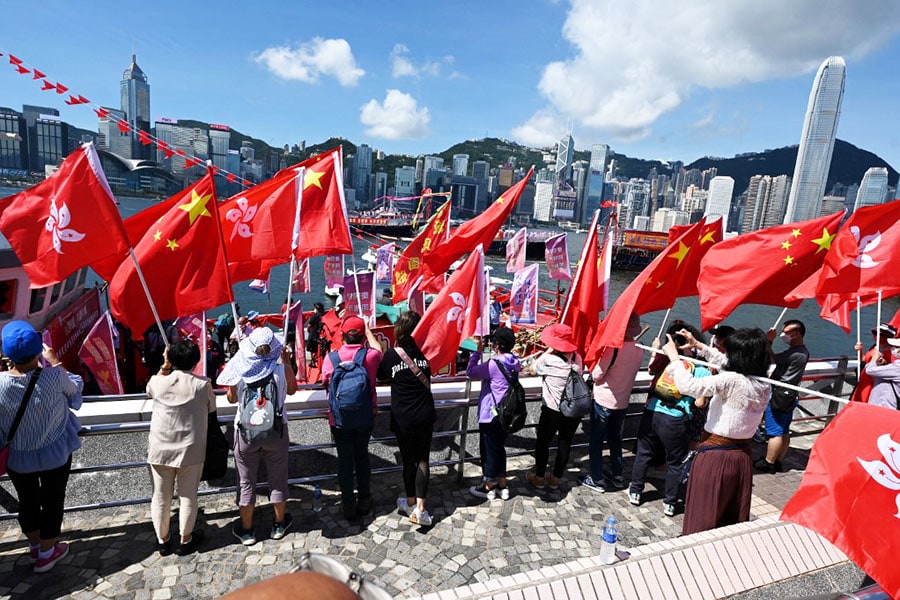
Hong Kong: 25 years on from British to Chinese handover
Twenty-five years after Britain's handover of Hong Kong to Chinese rule, there are no opposition lawmakers left in Hong Kong's legislature. Many have been arrested under a national security law Beijing imposed in 2020 or disqualified from standing for office under new "patriots only" electoral rules
 People wave Chinese and Hong Kong flags as fishing boats with banners and flags to mark the 25th anniversary of the Handover of Hong Kong from Britain to China sail through Hong Kong’s Victoria harbour on June 28, 2022. Image: Peter Parks / AFP
People wave Chinese and Hong Kong flags as fishing boats with banners and flags to mark the 25th anniversary of the Handover of Hong Kong from Britain to China sail through Hong Kong’s Victoria harbour on June 28, 2022. Image: Peter Parks / AFP
Hong Kong, China: As midnight struck on June 30, 1997 and Hong Kong transitioned from British to Chinese rule, pro-democracy lawmaker Lee Wing-tat stood with colleagues on the balcony of the city's legislature, holding a defiant protest.
Hong Kong will mark the 25th anniversary of the handover on Friday and the halfway point of One Country, Two Systems—the governance model agreed by Britain and China under which the city would keep some autonomy and freedoms.
That model was set to last 50 years. But even in its first hours, battle lines that would define Hong Kong's politics for the next two decades were drawn.
Furious at outgoing British governor Chris Patten's last-gasp attempts at democratisation, China had announced that any legislator who had openly supported the measures would be thrown out.







